In mid-September 2025, the SUNSET consortium met in Tartu, Estonia, for three days of presentations, training, and field-based learning. Hosted by the University of Tartu and its three research groups involved in the consortium, the event combined academic exchange with practical engagement, offering doctoral candidates (DCs) and supervisors an opportunity to reflect on research progress and explore the socio-ecological aspects of the urban green transition.
Day 1 – Consortium Meeting and Doctoral Presentations
The first day took place at the Department of Geography, University of Tartu. Following a Supervisory Board meeting led by project manager Gert-Jan Put, participants discussed SUNSET’s collective outputs, focusing on how individual research projects can be brought together into meaningful contributions.
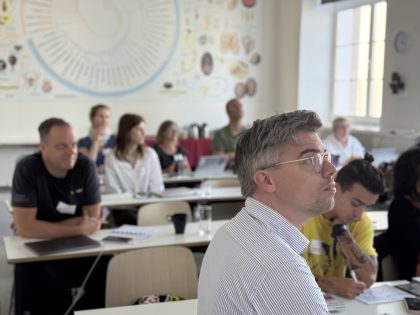
The afternoon was dedicated to doctoral presentations, where each DC introduced their research approach and preliminary results. With 7 minutes for presentation and 7 minutes for discussion, this format encouraged lively debate and constructive feedback. The presentations reflected the diversity of SUNSET’s research themes — from ecological monitoring to governance, planning, knowledge transfer and exchange and community engagement — while also revealing common threads and opportunities for collaboration across disciplines.
For a break in between the presentations, Dr Age Poom introduced the group to the Natural History Museum and the Department of Geography, located in the same building, together with some cartographic treasures from the past.

Day 2 – Training on Socio-Ecological Aspects of the Green Transition
The second day, hosted at Tartu Loodusmaja, was structured around three thematic lectures. Prof Aveliina Helm opened with an exploration of how urban areas can sustain biodiversity and ecological connectivity, stressing the potential role of cities in addressing global environmental challenges. Building on this ecological perspective, landscape architects Karin Bachmann and Merle Karro-Kalberg shared insights on nature-based solutions, drawing on both design practice and visionary planning to illustrate how green infrastructure can deliver co-benefits for climate adaptation, health, and social inclusivity.
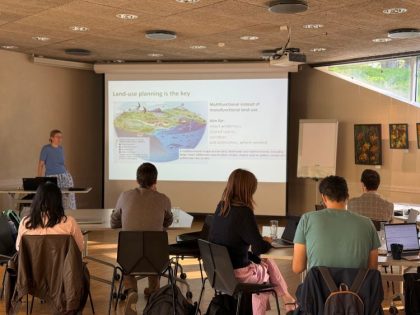
The training then shifted towards the governance and planning dimension, with Dr Pille Metspalu highlighting how urban planning processes can integrate ecological principles while also ensuring accessibility and equity. She illustrated these ideas with the case of Narva, showing how green space planning in Estonia’s border city brings together questions of biodiversity, community needs, and social justice.
Finally, representatives from the municipalities of Tartu and Tallinn, Elo Kiivet and Meelis Uustal, provided concrete examples of how green transition strategies are being implemented on the ground. Their presentations sparked lively discussion on the challenges of translating policy into practice, the importance of collaboration, and the social justice dimensions of urban nature.
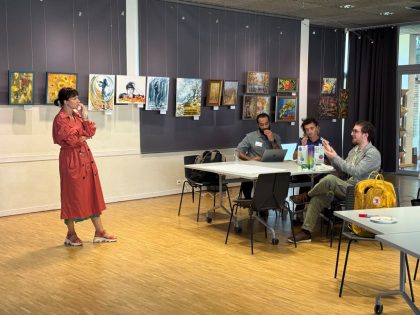
The day concluded with a collaborative exercise involving all doctoral candidates, who worked together on designing strategies for an imaginary city. By addressing urban challenges such as heat islands through nature-based solutions, the exercise encouraged creative thinking and highlighted how SUNSET research can inform innovative approaches to sustainable urban futures.
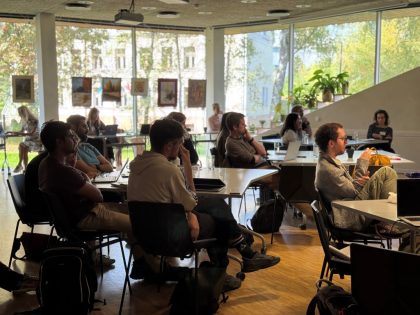
Day 3 – Field Trip and Wrap-Up
The final day moved outdoors, with a cycling tour through Tartu’s green infrastructure and biodiversity-friendly planning sites. This hands-on exploration, led by Merle Karro-Kalberg, highlighted practical examples of how ecological and social goals can be combined in urban settings.
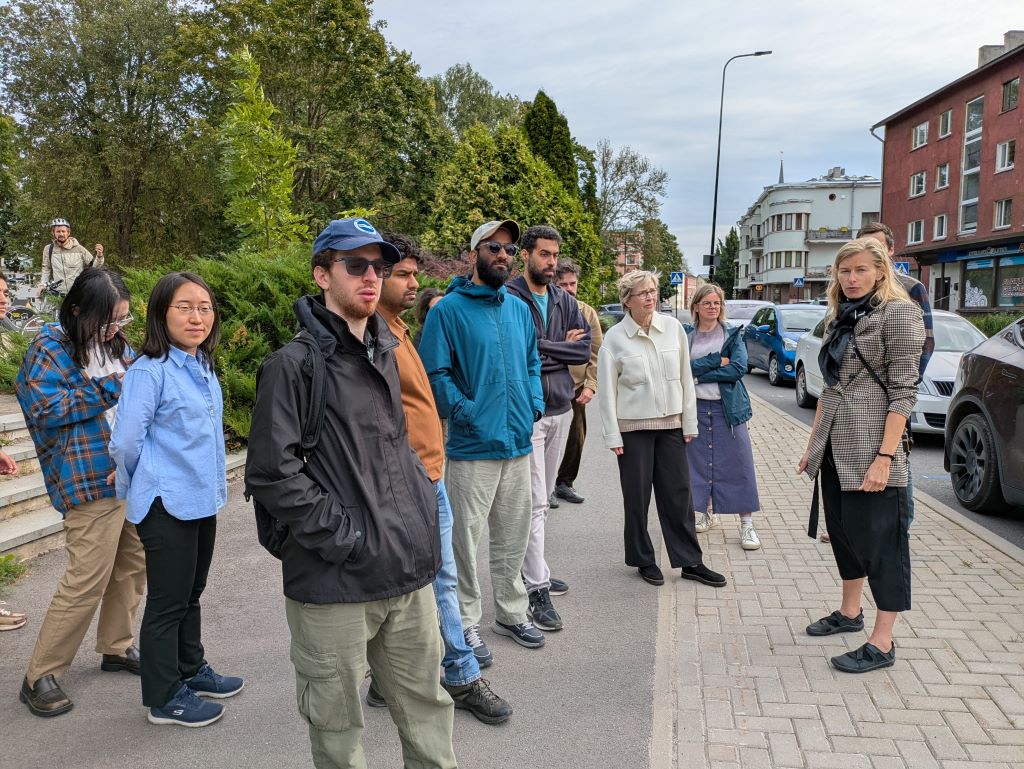
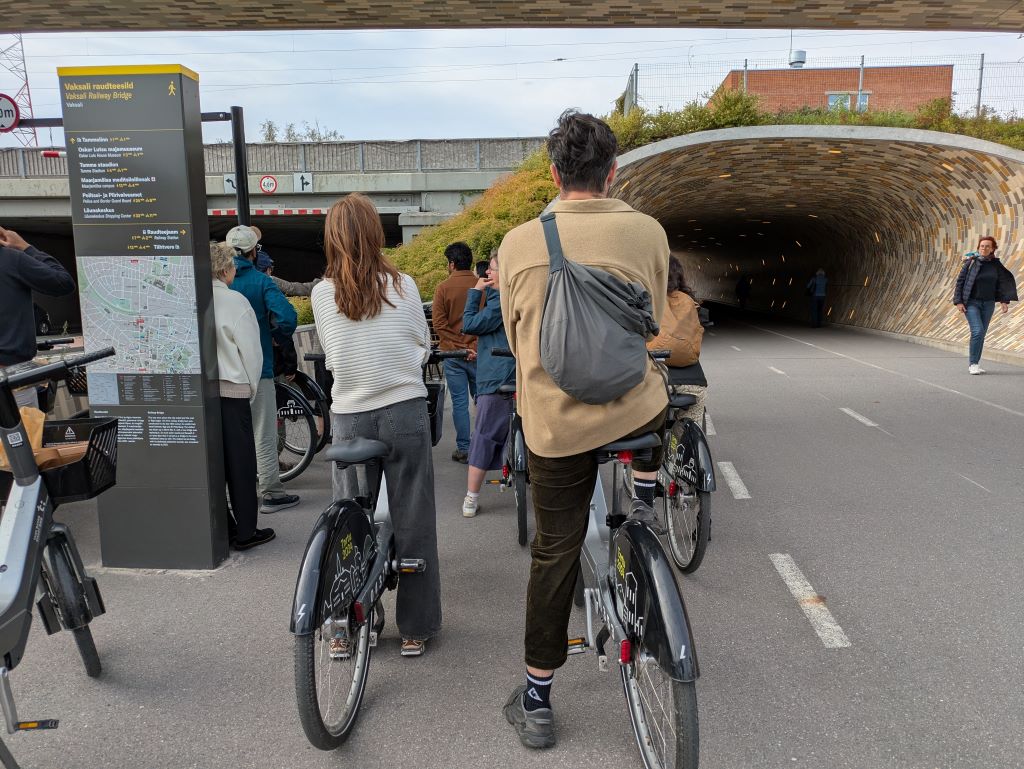
We followed our cycling tour with a barge trip on Emajõgi River where we could relax and digest the knowledge we learned while listening to the history of barges and trade in Estonia. On the boat, we had a chance to reflect on the training week and discuss what we learned as we enjoyed the last activity of the training week.
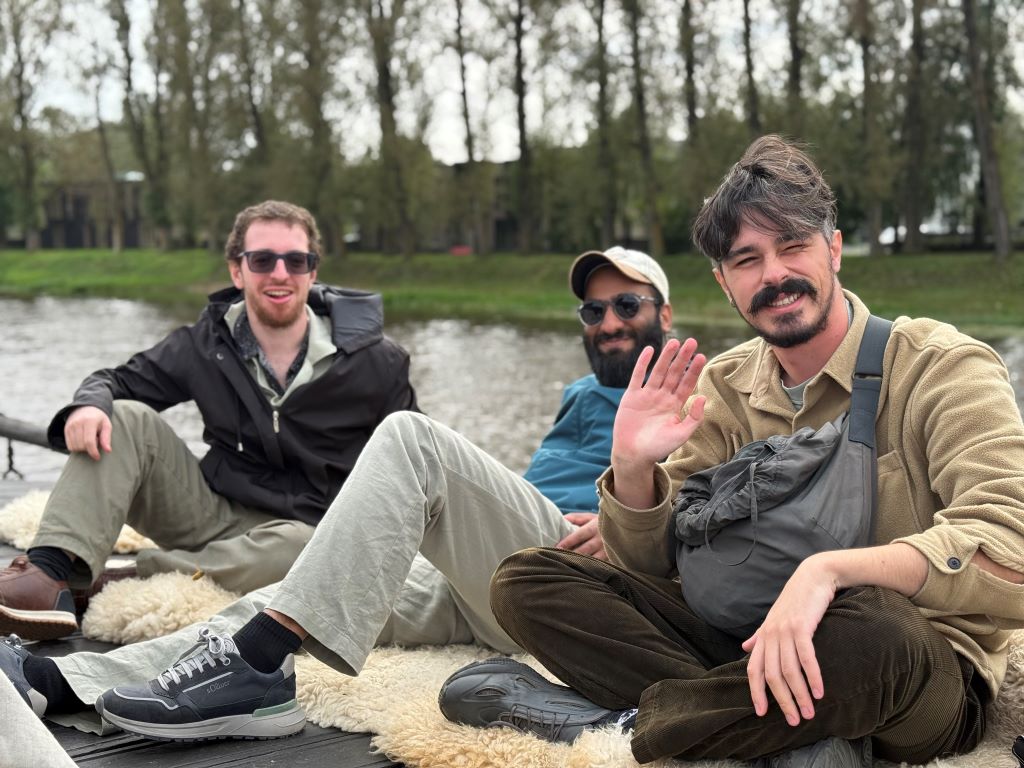
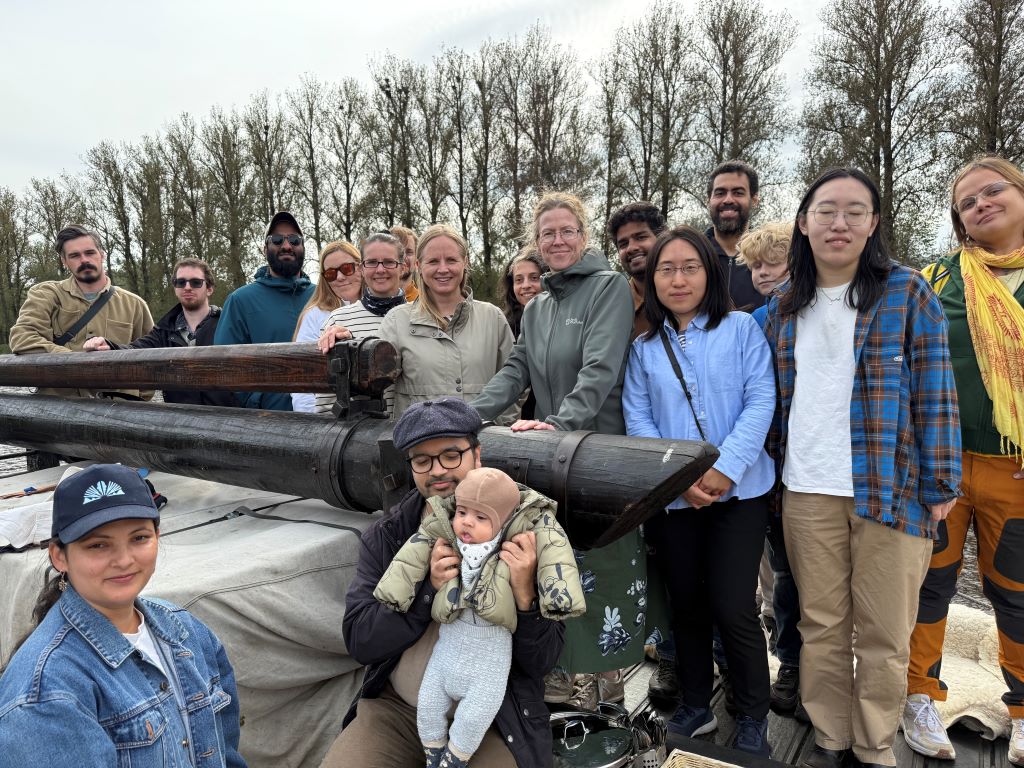
Key Takeaways
The Tartu meeting underlined the strength of combining academic research, practitioner insights, and experiential learning. Doctoral candidates not only presented their work but also engaged in shaping shared directions for the consortium. Across all three days, one theme was particularly clear: addressing the green transition requires not only technical and ecological solutions but also attention to governance, justice, and the lived experiences of urban residents.
The original blog post was published on the SUNSET website.
The Mobility Lab of the University of Tartu is an interdisciplinary research group that studies human mobility and its associations with society and the environment using mobile (big) data.
